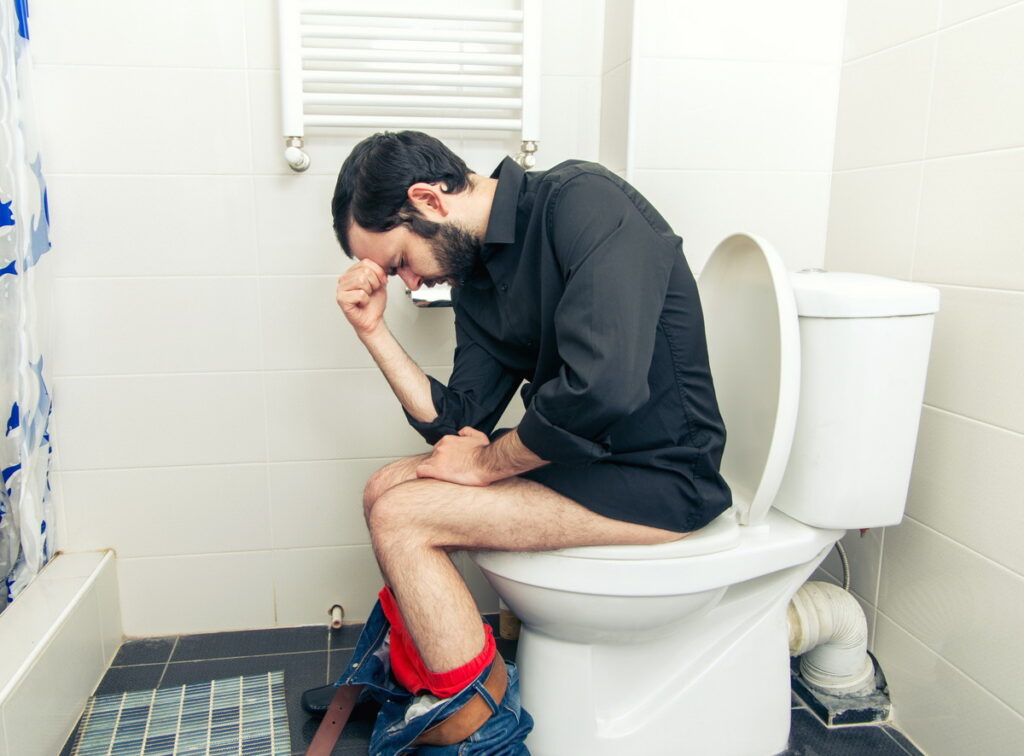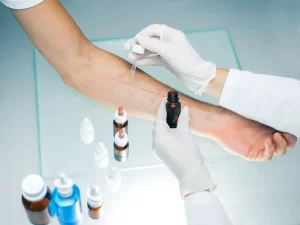Millions of people suffer from hemorrhoids, but many people are embarrassed to talk about them. Early detection of hemorrhoid symptoms aids in pain management and complications avoidance. Chronic constipation, poor diets, and sedentary lifestyles are contributing to an increase in cases nowadays. If treatment is not received, the illness may worsen and cause excruciating pain as well as other health problems.
Many people believe that minor discomfort or rectal bleeding will resolve itself. While this is occasionally the case, symptoms that worsen or persist may call for medical attention. Early symptom detection enables immediate treatment and required changes in lifestyle.
What Are Hemorrhoids
When the veins in the anus and lower rectum swell or become irritated, hemorrhoids develop. Though it occurs in a far more sensitive area, this condition is comparable to varicose veins. Adults who sit for extended periods, strain during bowel movements, or suffer from chronic constipation are particularly susceptible to hemorrhoids.
Internal and external hemorrhoids are the two primary types. Although they can cause bleeding during bowel movements, internal hemorrhoids typically cause no pain when they develop inside the rectum. Pain, swelling, and itching are caused by external hemorrhoids that develop beneath the skin surrounding the anus. Additionally, some people may develop thrombosed hemorrhoids, which are extremely uncomfortable and happen when blood clots form inside an external hemorrhoid.
Common Symptoms of Hemorrhoids
Pain and Discomfort When Sitting or Moving
Sitting discomfort is one of the most obvious indications of hemorrhoids. Sitting for extended periods of time can be excruciating due to the pressure on enlarged veins. This symptom may be especially annoying for people who drive for extended periods of time or work desk jobs. Moving around might help temporarily, but when sitting again, the pain usually comes back.
Itching and Irritation Around the Anus
Hemorrhoids can also cause persistent itching around the anus. Moisture and inflammation in the affected region are the causes of this irritation. Hemorrhoids are the cause of many people’s incorrect assumptions that they have a skin condition. While it may offer temporary relief, scratching the area may worsen inflammation and increase the risk of infection.
Swelling or Lumps Near the Anus
External Hemorrhoids typically give rise to apparent swellings or lumps around the anus. These lumps start soft but, once thrombosed, can become very hard and painful. A person may feel a lump on wiping, which is quite alarming. Tenderness usually accompanies it, rendering daily activities uncomfortable.
Bleeding During Bowel Movements
Hemorrhoids are most commonly identified by rectal bleeding. Usually, bright red blood may be seen on the toilet paper or in the bowl after a bowel movement, which indicates hemorrhoids. Although this symptom can make one anxious, small amounts of bleeding are usually not considered very serious. However, heavier or prolonged bleeding should be evaluated by a doctor to exclude other conditions like anal fissures or colorectal issues.
When to See a Doctor
Symptoms That May Need Medical Attention
Mild hemorrhoids can often improve through home remedies; however, in some instances, a medical consultation is necessary. Persistent symptoms of hemorrhoids lasting for more than a few weeks, or intractable pain, are sufficient reasons for consulting your doctor. Other alarming situations include excessive bleeding, inability to pass stool, or unbearable itching that interferes with daily life.
Why Early Treatment Matters
If an individual postpones the treatment, the hemorrhoids can worsen. In some of the serious cases of hemorrhoids, rubber band ligation, sclerotherapy, or even surgery becomes necessary. Prolonged symptomatology can lead to complications such as anemia, which further induces bleeding, and infection due to constant irritation. Medical consultation at an early stage can address these problems and mitigate symptom control.
Simple Ways to Manage and Prevent Hemorrhoids
Eating More Fiber and Staying Hydrated
Diet modification has been known to ease hemorrhoids if adopted into action. Fiber-rich foods such as fruits and vegetables help to soften the stool, thereby making for easier passage, minimizing straining. Water consumption, too, is vital, as it aids digestion and wards off blockage. Quite a few individuals have reported considerable improvements concerning symptoms of hemorrhoids simply via dietary changes.
Avoiding Strain During Bowel Movements
Hemorrhoids are more likely to occur when straining during bowel movements puts pressure on the rectum’s veins. Instead of holding in stool, which can make it more difficult to pass later, it is crucial to use the restroom when necessary. Long periods of time spent sitting on the toilet, particularly while reading or using a phone, can exacerbate symptoms.
Staying Active and Reducing Sitting Time
Frequent exercise lowers the risk of constipation and supports a healthy digestive system. Stretching and walking are easy ways to increase blood flow and reduce pressure in the rectal veins. To prevent prolonged strain on the lower body, people who work desk jobs should take hourly breaks to stand and move around.
Using Safe Home Remedies
Home remedies provide relief from certain symptoms of hemorrhoids. Warm sitz baths, wherein the affected area gets soaked in warm water for 10 to 15 minutes, may help in reducing swelling and irritation. Application of witch hazel or aloe vera is also said to soothe the skin. Some over-the-counter creams and suppositories may cause some temporary relief, but it’s best to see a healthcare professional for persistent symptoms.
Key Takeaway
Early hemorrhoid symptoms detection is key to receiving relief and preventing complications. Itching, swelling, pain, and rectal bleeding are all warning signs that should not be ignored. In certain situations, lifestyle modifications and home remedies can be helpful, but in others, medical intervention may be required.
Hemorrhoids can be prevented from becoming worse by eating a lot of fiber, staying hydrated, avoiding heavy lifting, and staying active. Better management will result in greater comfort and wellbeing the sooner we address the symptoms. Medical assistance should be sought right away if the symptoms worsen or continue. Proper hemorrhoid treatment can help people live more comfortably and healthily.






